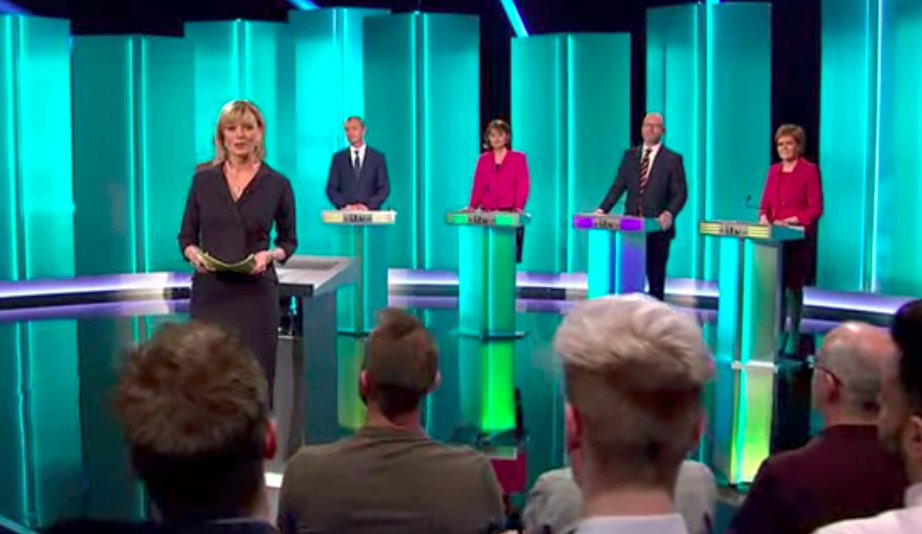By the standards of a ‘normal’ election, the ITV televised leaders’ debate might have seemed like a bit of a waste of time. The most prominent politician present was Nicola Sturgeon, who is not standing in the General Election. But she does have some claim to opposition, given that her party is the most disciplined and effective form of opposition in Westminster at the moment (given the misery of Labour and the tiny Lib Dem presence). Tim Farron – who must have been relieved not to have to talk about gay sex, abortion or faith healing – was the most prominent Westminster-based party leader. Jeremy Corbyn was not present.
I understand that the leader’s top team were still deliberating today about whether he should be joining tonight’s line up – which is extraordinary given the level of preparation required to shine in these sorts of debates. In a ‘normal’ election scenario, it might be considered beneath the Labour leader to join a line up of the smaller parties. Some argued that Ed Miliband attending the equivalent debate back in 2015 undermined his pitch to be a Prime Minister. This was when a General Election involved some speculation about who might end up in government, rather than certainty about who the Prime Minister will be after polling day and speculation about just how shattered the Opposition will be. This topsy-turvy election means that there is so much more focus on the role and value of the opposition: both Labour and Lib Dem leaflets are focusing on the concept of ‘effective opposition’, and the leaders tonight sparred over who would be the best at standing up to the Tories.
That’s the case for Jeremy Corbyn having joined the debate tonight. He is, after all, the Leader of the Opposition and might have been able to point to examples of where he believes he has already done this job effectively in Parliament, week in, week out.
But I suspect for Corbyn, the decision not to go near this opposition-focused debate has much more to do with his own belief that this election should be fought on normal terms (ie, that Labour might win). The Labour leader is focusing on seats which his party might like to gain – and more rarely popping up in constituencies whose sitting Labour MP actually likes him. He is fighting this election as though he could win it, while many of his MPs are desperately trying to convince anyone who will listen that Labour has no hope of winning, so it is therefore safe to vote for them locally. From their perspective, the fewer appearances Corbyn makes during the campaign, whether on television or anywhere near their local area, the better.
Corbyn may also have found it rather uncomfortable being ganged up on from the Left by Caroline Lucas, Nicola Sturgeon and Leanne Wood, who gave the altogether more professional Ed Miliband a hard time in 2015. They might have asked him why he abandoned the principles of unilateral nuclear disarmament, for instance. Tim Farron could accuse Corbyn of voting in favour of Brexit (though this would be less personally painful to him, given that he’s more ambivalent about Europe than he is on, say, defence). So perhaps Corbyn made the right decision in the name of avoiding political pain for himself – and his critics in his own party.







Comments